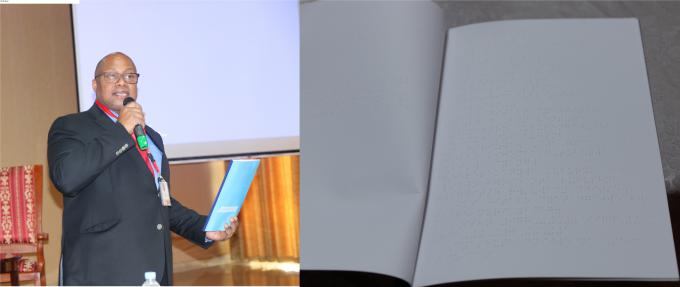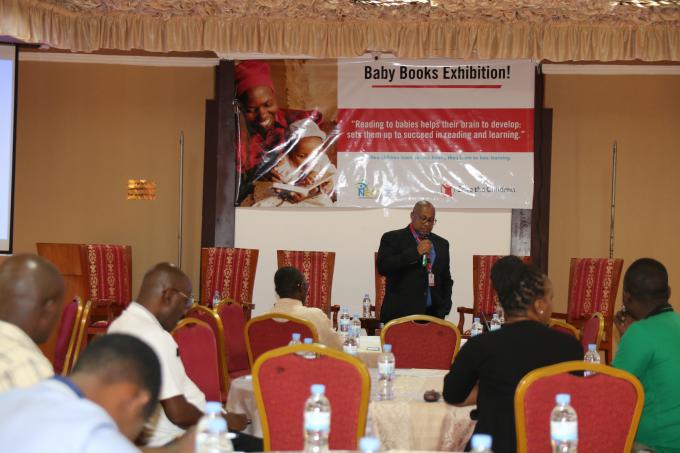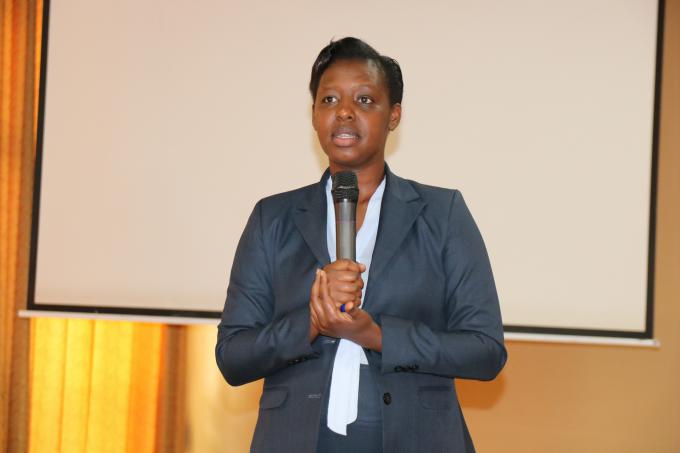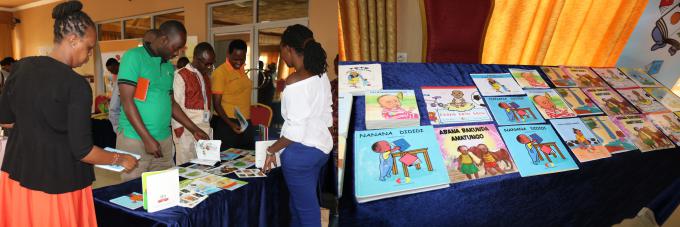Adapting story Books for Visually Impaired children in Rwanda.
Kigali, Rwanda, 5 October 2018 – “I am very proud to present to you 200 Story books for children with visual impairments. In Rwanda, these children did not have access to appropriate story books to read and develop their literacy. The only Kinyarwanda Braille books available were textbooks and the Bible” - said Philippe Adapoe, Country Director Save the Children Rwanda, during the launch of the first exhibition on children story books.

Non-discrimination is one of the major challenges educations systems face around the world and the values of inclusion are best inculcated at a young age, Rwanda included. For Save the Children to ensure inclusiveness, it explored availing Braille materials to support literacy development for children with visual impairment. The best books for visually impaired children are of course print (Braille books). Braille is used by people who are blind or partially blind. This language requires the user to feel raised dots on a page with their fingers. A Print-Braille book is one that provides both print and Braille on the same page, making it possible for a visually impaired and a normal sighted child to read from the same book. Thus, a sighted parent, sibling, friend, or teacher can read along with the child.
Private sector partnership to amass production of inclusive age appropriate reading materials.
Through partnership with the Private Sector, Save the Children negotiated free copyrights of ten Kinyarwanda children’s books to be published in Braille, and collaborated with Rwanda Union of the Blind to print these books at a discount price and distribute them to different schools. The new Braille Books are part of the many age-appropriate storybooks displayed at the Exhibition last week. “Thanks to seven publishers in Rwanda who donated their copy rights that contributed to the production of more books for children with visual impairment.We do whatever it takes to ensure no child is left behind,” noted Philippe Adapoe.
Dr Anita Asiimwe, National Early Childhood Development Program Coordinator commended the work Save the Children does to improve children literacy. “Save the Children is among our key partners: I thank you for the work you do to contribute to the learning and development of children. I have seen innovations in baby books production, like the handmade books.We need more parents’ initiatives that contribute to children’s development from an early age”.
Getting parents involved to support children’s literacy development at an early age.
UNESCO report 2012, shows that globally more than 250 million children lack foundational skills in reading. This prevents them from fully benefiting from primary education. Yet the foundations for literacy and learning are formed in the first 6 years of life, also characterized by development of 80% of the human brain.
Speaking to the participants in the baby books exhibition, Philippe emphasized the role of parents in child literacy: “As parents and guardians, we should know that reading books to children stimulates their imagination and expands their understanding of the world. It helps them develop language and listening skills at an early age, which improves social development skills”.

This was echoed by Dr. Anita, “Thanks to all parents who are involved in reading books to babies, especially husbands. Male parents, it is important to help your children’s reading as early as possible”.
Save the Children is working to provide a continuum of services for children aged 0-9 years that focuses on beginning early, mastering foundational literacy skills, and improving overall learning outcomes. This is accomplished by supporting the local publishing industry to improve the quality and availability of age-appropriate, local language children’s books. The Baby books, 0-3 years, production is still far behind in Rwanda comparing to other books. Country Director, Save the Children called on all publishers and their supporters to fill this gap and produce many books in different languages but mostly Kinyarwanda as the mother tongue.
Writen by Elysee Niyigena and Martin Niyonkuru
Edited by Annet Birungi
 Rwanda
Rwanda 

